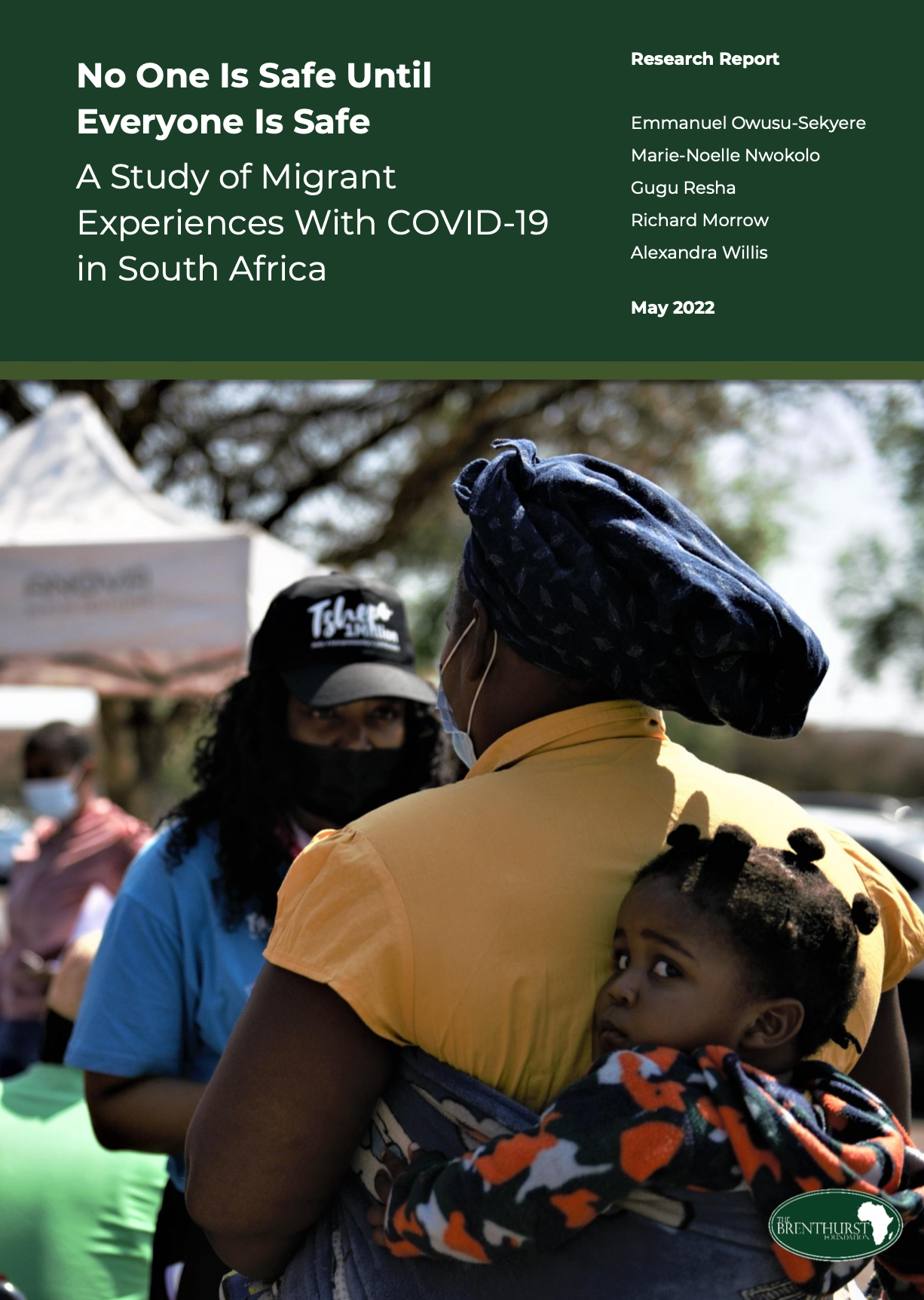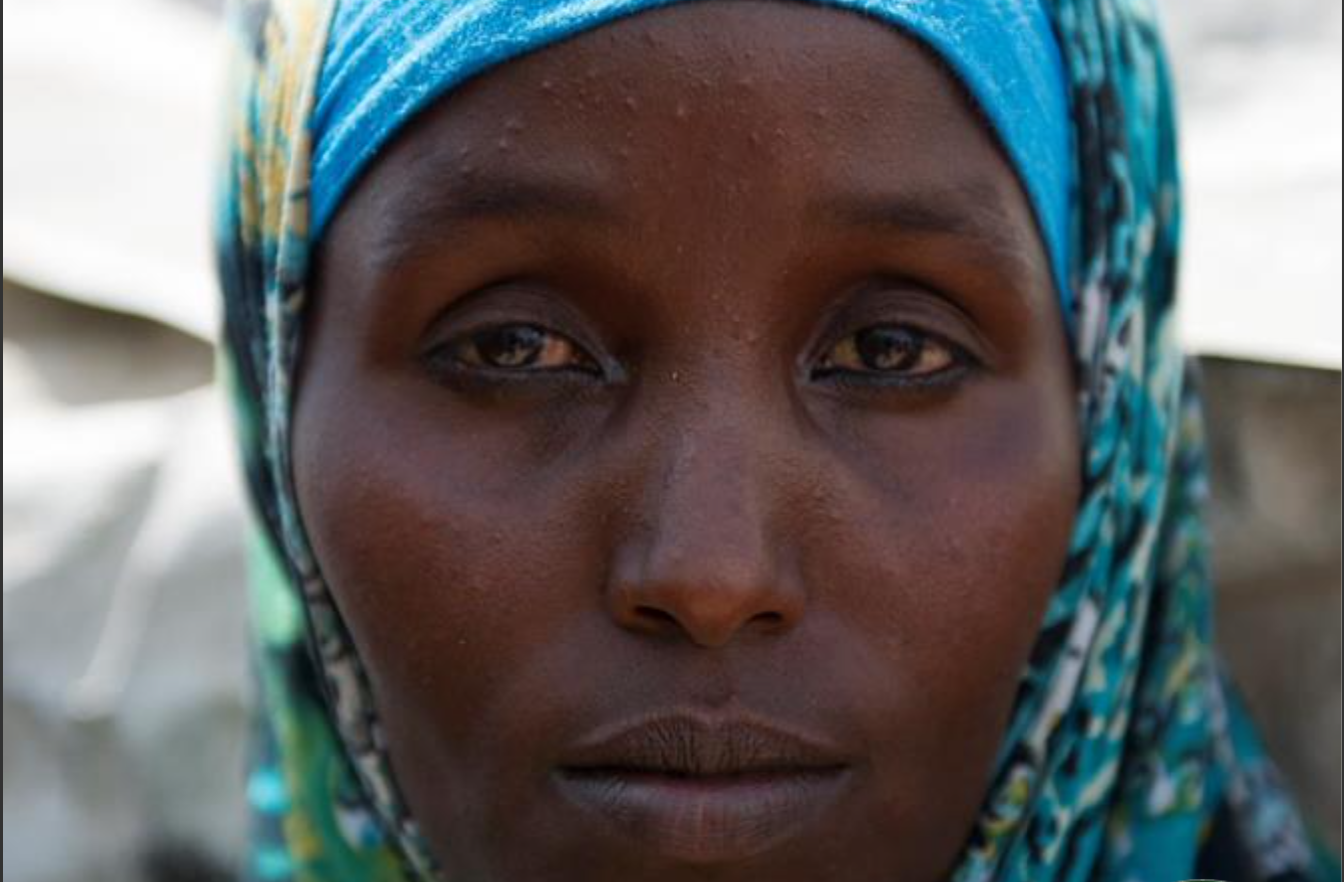Publications
No One Is Safe Until Everyone Is Safe: A Study of Migrant Experiences With COVID-19 in South Africa

Machel-Mandela Fellow

Researcher, The Brenthurst Foundation

Machel-Mandela Fellow

Associate Researcher, The Brenthurst Foundation

Deputy Research Director, The Brenthurst Foundation
This defeats the Sustainable Development Goal (SDG) mantra of “leaving no one behind” and the fact that “nobody is safe until everyone is safe”, as emphasised by the World Health Organisation (WHO). Besides the exclusion of non- nationals in pandemic related interventions, the socio-economic impact of the pandemic and difficulties in building back better has led to increasing social tensions over scarce resources, depleting opportunities and deteriorating living standards for many.
South Africa's economy was already in a technical recession before the pandemic and experiencing record-high unemployment levels amid poor growth forecasts. In addition, a slow pace of accountability in gross misconduct and corruption cases has painted a picture of inefficient state institutions giving rise to the vigilante-style active citizenry. In the process, society's frustrations are deflected from the actual causes of their plight towards non-nationals, who are now being blamed for the high levels of unemployment, inequality, poverty and crime in South Africa.
In this context, the Brenthurst Foundation research team looked into how non-nationals have survived under such challenging circumstances. The study focussed on how migrant communities, asylum seekers and refugees in South Africa, specifically in Gauteng, KwaZulu-Natal and Western Cape, built resilience, or lack thereof, during the pandemic and the measures taken to curb its spread, such as the lockdown. These three provinces were chosen for this study because they constitute South Africa's growth hubs, are hosts to the highest proportions of migrants in South Africa and were among the provinces with the highest number of COVID-19 infections. Utilising the structure of the World Risk Index, constructed by the United Nations University's Institute of Environmental and Human Security as a conceptual framework and a mixed-method approach, the findings reveal the levels, and kinds, of risk and susceptibility non-national communities in South Africa experienced, and the subsequent coping and adaptation strategies they embraced to develop and maintain resilience in the “new normal”.
Although the experiences of non-nationals in South Africa pre- and post-COVID-19 are not mutually exclusive, the onset of the pandemic has highlighted the severity of these experiences. Approximately 200 non-nationals of diverse categories were engaged in this study, namely asylum seekers, refugees, documented migrants with diverse types of permits and undocumented migrants. Different types of international and local institutions that deal with non-national communities were also consulted, including state departments. Ethical clearance for this study was obtained from the South African Medical Association Research Ethics Committee (SAMAREC). In addition to international best practices, the findings of this study have significant implications for migration management in South Africa in light of subsequent pandemics.
Key findings
- Documentation: Refugees and asylum seekers have been rendered irregular due to the Department of Home Affairs' decision to close various branches across the country. This has increased their vulnerability to rising vigilantism and harassment from law enforcement.
- Discrimination: Government interventions, narratives and systems that were used to mitigate the harsh socio-economic impact were quite exclusionary.
- Access to healthcare: A major challenge for non-nationals in South Africa, contrary to international law and human rights.
- Statelessness at birth: Children born to undocumented non-nationals in South Africa are at high risk of being rendered stateless as they have no identity. This needs to be addressed as it increases the stock of undocumented -non-nationals across generations and over time, compounding and sustaining the challenges South Africa faces regarding this demographic.
- Data: There seems to be a challenge of inaccurate data on who is where in South Africa for moving populations. This makes it difficult for government to know where to find non-nationals for policy intervention purposes.
- Future-proofing protocols: The EVDS system will need to be updated for future pandemics as foreign ID numbers were experiencing challenges in trying to register on the system.
- Policy Review: There didn't seem to be any specific policies tailored to the needs of the vulnerable, e.g. persons with disabilities, women and children.
MIGRANTS SURVEY LAUNCH WEBINAR



